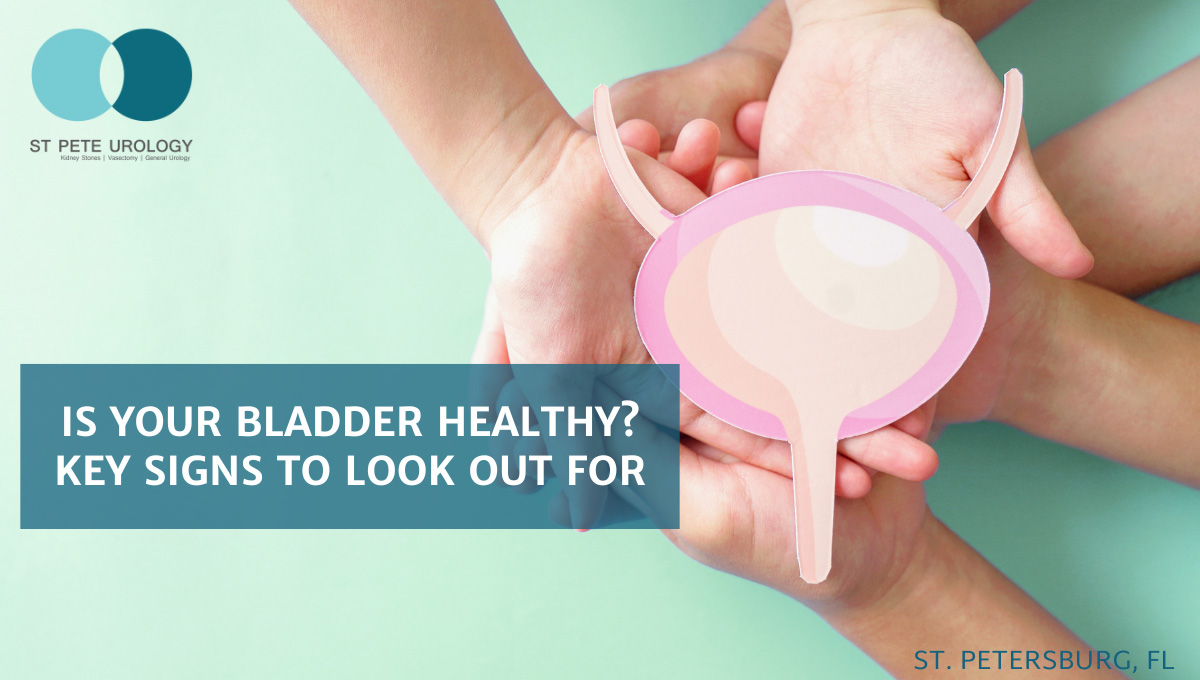3 Key Takeaways:
- Recognizing the key signs of a healthy bladder is important to monitor its condition and seek medical advice when necessary.
- Common bladder health issues, such as UTIs and overactive bladder, can significantly impede bladder function.
- Good bladder health can be maintained through adequate hydration, proper toilet habits, dietary considerations, regular exercise, and stress management.
 Just as the brain regulates your thoughts and your heart keeps your blood pumping, your bladder plays an equally important role in your overall well-being. But how often do you pause to consider the state of your bladder health? This article aims to help you understand the key signs of a healthy bladder, allowing you to monitor its condition and seek necessary medical advice.
Just as the brain regulates your thoughts and your heart keeps your blood pumping, your bladder plays an equally important role in your overall well-being. But how often do you pause to consider the state of your bladder health? This article aims to help you understand the key signs of a healthy bladder, allowing you to monitor its condition and seek necessary medical advice.
Understanding the Bladder: The Lead Character in a Silent Drama
Your bladder, a muscular sac located in your pelvis, serves as a storage unit for urine. It is an overlooked hero functioning flawlessly most of the time, but common bladder health issues, such as urinary tract infections (UTIs) and overactive bladder, can significantly impede its operation.
Key Signs of a Healthy Bladder: The Evidence You Need
- Consistent and Normal Urination: Normal urination involves emptying the bladder every three to four hours without urgency or difficulty in starting or stopping the flow.
- Sufficient and Adequate Urine Output: A healthy bladder produces a reasonable amount of urine — usually clear or pale yellow — during each trip to the bathroom.
- Absence of Pain or Discomfort: Any pain, burning sensation during urination, or discomfort in the pelvic region can indicate an issue with your bladder health.
- Regular and Normal Sleep Patterns: A healthy bladder allows uninterrupted sleep for a reasonable duration, without the constant need to urinate.
- Healthy Bowel Function: Regular and normal bowel movements, without constipation or other digestive issues, also signify a healthy bladder.
Common Bladder Health Problems: The Challenges You May Encounter
- Urinary Tract Infections (UTIs): Watch out for symptoms like a strong urge to urinate, a burning sensation during urination, or cloudy urine. Preventive measures and appropriate treatments can help manage UTIs.
- Overactive Bladder: Overactive bladder is marked by an urgent and frequent need to urinate. Effective management techniques and lifestyle changes can alleviate these symptoms.
- Urinary Incontinence: There are different types of urinary incontinence. By knowing the signs and prevention tips, you can effectively manage this condition.
Maintaining a Healthy Bladder: Your Role in the Drama
- Hydrate! Drinking enough water helps dilute the urine, reducing the risk of bladder problems.
- Proper toilet habits: Avoid holding urine for too long and ensure that you empty your bladder completely.
- Dietary Considerations: Certain foods and beverages can impact bladder health. Knowing what they are and moderating consumption can help.
- Regular Exercise: Physical activity can aid bladder function, reducing the risk of incontinence.
- Stress Management: Reducing stress can also lead to better bladder health.
Conclusion: The Finale of Your Bladder’s Performance
Recognizing the key signs of a healthy bladder is crucial. It’s essential to pay attention to your bladder health and seek medical advice if you experience any bladder-related concerns. St Pete Urology, a reputed urology practice in St. Petersburg, FL, is ready and willing to assist. Their team of experienced urologists is committed to working with you to ensure optimal bladder health. So, take note, take charge, and never underestimate the importance of your bladder health.
References:
- “urinary tract infection (UTI) – Antibiotic Use – CDC.” https://www.cdc.gov/antibiotic-use/uti.html.
- “Types of urinary incontinence – Harvard Health.” 28 Dec. 2014, https://www.health.harvard.edu/bladder-and-bowel/types-of-urinary-incontinence.
- “What is a Healthy Bladder? – Urology Care Foundation.” 11 May. 2016, https://www.urologyhealth.org/healthy-living/care-blog/what-is-a-healthy-bladder.





